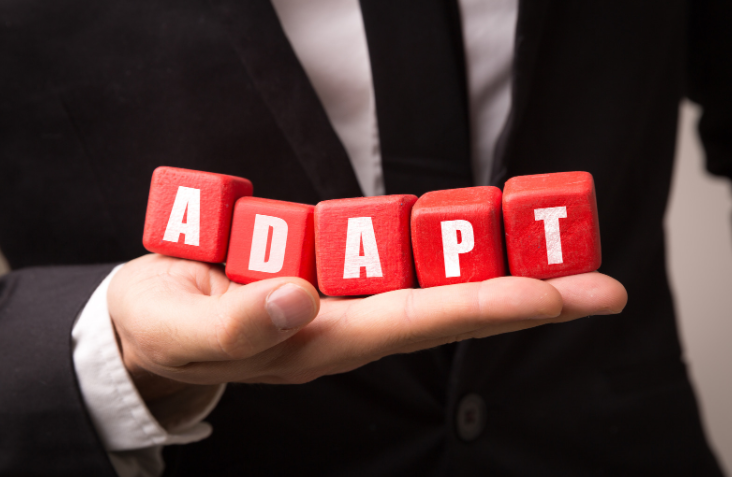responding to covid-19 

By Chris Andrews - Head of AdVisory
03/04/2020

Covid-19 has dramatically impacted everyone in such a compressed timeframe that many companies are understandably struggling to react. We recently sat down with Chris Andrews, Director at Stone, to discuss the operating challenges facing Stone’s clients (and Stone themselves), as well as any takeaways worth sharing in this unprecedented situation.
How is this situation different from others in the past?
Well the obvious one is the physical causal aspect. I worked through the dotcom crash and the GFC – both originated in the financial sector. During those, the steps to recovery were hard to put in a timeline but they followed a relatively predictable sequence in terms of the process. This time it’s an ongoing, unprecedented physical (and increasingly mental) health situation, with the financial fall-out being just one massive interdependency. The major traits have been the speed of the shut-down, the isolation aspect of sending everyone home and the lack of certainty with regards to future planning. These have made working through the situation that much harder and it seems as though, in Australia, we are still heading in, not out.
How is it commercially impacting different sectors?
Clearly everything has slowed and many companies are seeing a total hiring freeze. That said, FMCG, Fintech, Medical (some parts) and Logistics sectors are all seeing increases in demand. From a role perspective, supply-chain workers and developers are stronger than most. Marketing and
Engineering are particularly hard hit for now. Again, the largest commercial impact relates to lack of timeframes and certainty.
How are clients coping?
This is a generalisation but the approach we are seeing from most clients follows a pattern as for other crises, albeit with a major shift in emphasis towards safety. The approach can be divided into four areas: Protect, Operate, Perform, Review.
Protect clearly has an enormous, altered resonance in the current situation, as we are talking about the physical wellbeing of employees in real time. I am speaking with CEO’s and HR Directors who are currently ensuring the immediate physical safety of employees at all levels across the country (and beyond), while simultaneously looking to responsibly transition entire workforces across to remote working situations. This ‘human’ aspect rightly taking precedence over traditional, commercial protective measures such as managing cash, reducing outgoings and assessing workforce levels, although these latter are often happening in parallel as revenues plummet. Most leadership teams are understandably talking to banks, landlords, employees, the ATO – anyone they can – about reducing cash outgoings as much and as soon as possible.
Operate refers to adapting sufficiently to the new situation so you can continue to trade. What are the expectations on your people, and how have their KPI’s adapted now they are working at home? How do you maintain a sense of individual purpose, sitting at home on your own with so much uncertainty? This is the feedback I am hearing from leaders faced with a new set of challenges around motivating and guiding a remote workforce whose drivers have changed. There is no clear feedback on this one as most companies are still transitioning into this phase. We have noticed that clients who establish new expectations quickly and provide a purpose to each team member are reporting stronger virtual teams as a result. There is also a degree of pivot where companies are looking to develop even a basic revenue stream in order to work through the next 12 months. As an example, at Stone we are seeing an upturn in demand for our outplacement services over pure recruiting, hence we are focusing more time in this space.
Perform talks to the future. What will your business look like in 12, 18, 24 months from today? Most CEO’s are heavily much mired in the first two phases, so Perform seems a long way away. Secondly, it can come across as insensitive to talk about growth as this crisis and the human cost escalates through isolation, redundancies, illness and death.
The reality for a leader, however, is that Protect, Operate and Perform are all part of a cycle, and Performance flows into Protection down the track (more cash in the bank means a bigger buffer for example). CEO’s therefore have a duty to drive performance within the boundaries of compassion and I think we are starting to see that long-range planning emerge as much as it can. I have spoken to CEO’s who are exhausted, caring 24/7 for their teams, ensuring everyone is safe and well, while planning future opportunities.
We are still heading into Protect and Operate, but Perform, when the time comes, could be a very different proposition for many businesses, as most leaders feel that their business and the market will never return to a pre-2020 state.
Companies that proactively identify, engage and attract the core competencies for sustained performance have a huge advantage over their competition. If you would like to discuss how this is achievable, call Chris at Stone today on 0430 160 709. enquiry@stonerecruitment.com.au
BACK

